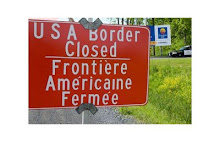Thursday, November 5, 2009
The Feds Continue to Move Against Native Retailers
View the post from May 22, 2009 and the comments that follow.
The PACT Act Will Not Necessarily End the Native Tobacco Business, It Will Criminalize It!
The side bar has a link to a Call to Action flier and information sheet. Mail it, email it and hand it out to all customers of our Native retail outlets.
The PACT Act Will Not Necessarily End the Native Tobacco Business, It Will Criminalize It!
The side bar has a link to a Call to Action flier and information sheet. Mail it, email it and hand it out to all customers of our Native retail outlets.
Subscribe to:
Post Comments (Atom)













![-[]-[]-/\-[]-[]-](https://blogger.googleusercontent.com/img/b/R29vZ2xl/AVvXsEjLoXmKO8PJVQ5pZ2q7GX7nFKw8H2tb28dxt-o10FUBNtOGszWhWoLB7tgjtMgtISpuSxNW3fcDxfuSS2DqojsdjNJ1lVggyUS374PnzsDbOhk4ukvtTunFQcyfkckZeBzcLbri4LDYN_E/s214/29-03-A-voice-from-the-Akw-.jpg)





7 comments:
What do you base your opinion on that Native Tobacco Businesses can deliver cigarettes, with impunity, to foreign states? Why the free pass? Do you make the same claim of immunity from regulation for deliveries to the UK? France?
The US Constitution provides no authority to the states to regulate commerce with Indians. The Constitution vests that power in the Congress. These sales are legal and the point of sale is on our territory. The US postal Service is used to deliver the product that a consumer has purchased. It is not accurate to refer to these sales as via the internet or via the mail. These services provide the vehicle for the payments, payment information and customer information to reach our Native retailers and the USPS provides the consumer with the vehicle to deliver their purchased product to them. The sale is a transaction that neither the states nor the feds have the right to interfere with; the sale is ours. The purchase or use by non-natives is an activity that the state and feds do have authority to regulate. Any tax liability associated with the purchase or use is born by the consumer. It should be noted that most states, including New York, exempt use tax on up to 2 cartons of untaxed cigarettes. If the PACT Act passes, the point of sale for mailed tobacco will move out of the country. They already exist but our stores dominate this industry as it exists legally in the absence of the PACT Act. Foreign countries will enjoy immunity from prosecution for shipping untaxed cigarettes into the US. The USPS will have to spend hundreds of millions of dollars to effectively intercept enough parcels to diminish the viability of the trade. While I would argue for our immunity as well even in a post PACT Act era the reality is that the feds will tie us up in court enough to strangle our attemts to survive. The difference between our domination of this business and it going off shore is the loss of federal excise tax, the MSA payments and any economic benfit domestically from the sale.
Pridebourne; I misunderstood you question regarding British or French regulations. I absolutely stand by our right to make a sale on our teritory to a Brit or a Frenchman. Whether that customer walks into one of our stores to make purchase for use and consumption back home or if he uses the mail, a phone or the internet to provide the funds for the purchase and hires mail carriers to deliver his product, our transaction is the same. It is a sale on our land. The Universal Postal Convention, which the US and over a hundred other nations are parties to, allows tobacco to be mailed. As with US purchasers, any tax liabilty falls on the foreign consumer as well. This has nothing to do with our immunity to the laws of other nations. We don't deliver cigarettes. We sell them on our land. Transactions that we perform on our land are protected by our sovereignty. The universal postal agreements that allow for the delivery of tobacco provides the opportunity for consumers to make remote purchases and hire carriers to make the deliveries. The concept of a remote purchase is that those purchases are made on our land; at our stores, even though the consumer doesn't necessarily come here. Once that purchase is made the customer owns the product. The mail carrier is hired by the customer and takes custody of the product on behalf of that customer. Neither the UK nor France could prosecute a sale on our lands. Ironically, the US would have the responsibility to protect our people from such a foreign threat. If authorities deem it necessary, appropriate or feasable to seize product owned by their constituents as it enters their jurisdiction or tax their residents for the use of products purchased from us is not our issue.
Read the USPS testimony from the hearing in New York. It is posted here. Even the Post Office agrees the practice is legal.
I agree with your take on "walk-in" purchases, especially when they are allowed two cartons at a time. The PACT Act does not regulate walk-in purchases. The PACT Act does regulate state to state commerce. The US "Postal Service is required by law to provide delivery service to the American public when mailable matter is properly presented." The mail-order/internet sales are not "walk-in" purchases, purchased made on our territory. Although the operator may be Seneca, and their operation is in Seneca Nation, their mailable matter is not properly presented as such. The operators utilize NY addresses and, possibly, NY/USA based servers to host their site and transactions. (States have been making strides towards recover internet gambling revenue based on the location of the user or server) Besides the advertised Seneca-branding, operators are representing themselves as domestic NY operations shipping to another state. Even under these circumstances i would agree with your take that it's allowed, since, the US postal service is not required to inspect the packages, other foreign countries can do it, and the importers are required to reporting their imports(over two cartons) to the state. I agree that the responsibility is on the consumer, which is why our businesses have to stop crying foul, racism, discrimination, everytime their exploitive models are questioned. Claiming sovereignty than operating as just another domestic business of NY harms legitimately sovereign businesses. Exporters should respect foreign nations policies.
It is not that consumers are only allowed to purchase two cartons, it is that up to two cartons are exempt from the state use tax (in New York). Whether a purchase is of the "walk-in" variety or a remote or non face-to-face purchase, the point of purchase is still at our retail establishments. Although the definition of "point of purchase" has been batted around, the generally accepted definition is the place where either the funds are collected for the transaction or where the data for payment is collected. It isn't an issue of the use of the mail or internet or phone. It is where the data is physically being collected. Call centers that are not on our land probably cross a defensible line, but server location or definition of cyberspace are irrelevant.
The foul that our businesses and others are crying is the attempt by the state and feds to shift that burden of responsibilty for taxes to our people on our land. There are three issue that never quite get addressed.
1. Why should our businesses be forced to bear the overhead of the state's tax collection on their people.
2. The states and even some federal authorities are trying to claim that all sales to non-natives are taxable. New York does not openly acknowledge that every person in the state can legally use and possess up to two catons at a time with no tax liabilty. New York hides that fact and goes further to imply they have the right to collect taxes on purchases made by out of state consumers as well.
3. The PACT Act clearly is designed to shut down consumers from using the USPS to deliver products purchase from Native retailers. The states have many other mechanisms they could employ to stop non-native remote sales. These tools are not used because they would leave our retailers untouched. The PACT Act specifically makes cigarettes and other tobacco products used predominantly by the middle class non-mailable (products such as cigars and pipe tobbaco that cater to the wealthier clientele would still be mailable). The states need federal legislation to shut us down. It doesn't matter how universal they try to make the law appear, it still is design to disproportionately effect Native business.
I am confused why this is even an issue. By treaty the Seneca nation is recognized as separately sovereign entity, and hence there is no basis for federal supremacy. However, further still, interfering in the trade of another sovereign nation, such as blockading or embargoing goods is considered an act of war under present international law. The appropriate avenue for this is certainly not in NY state, or even the U.S. government and their kangaroo courts, but rather mediating institutions like the International Court of Justice where the nations sovereignty could be respected.
Post a Comment